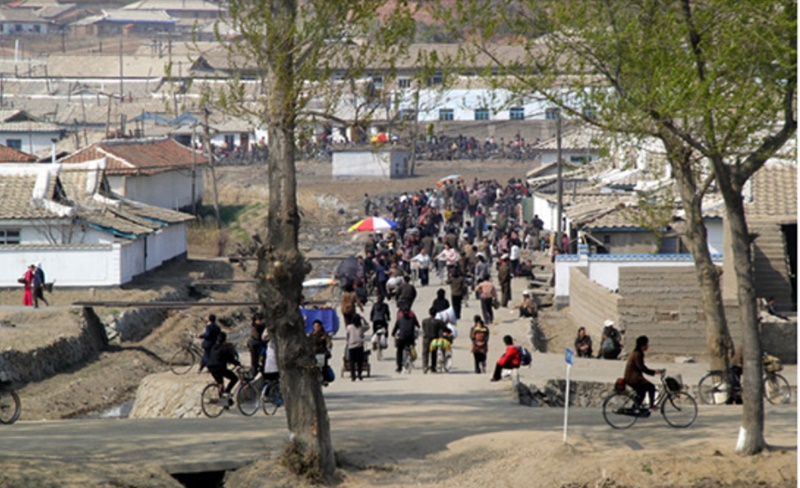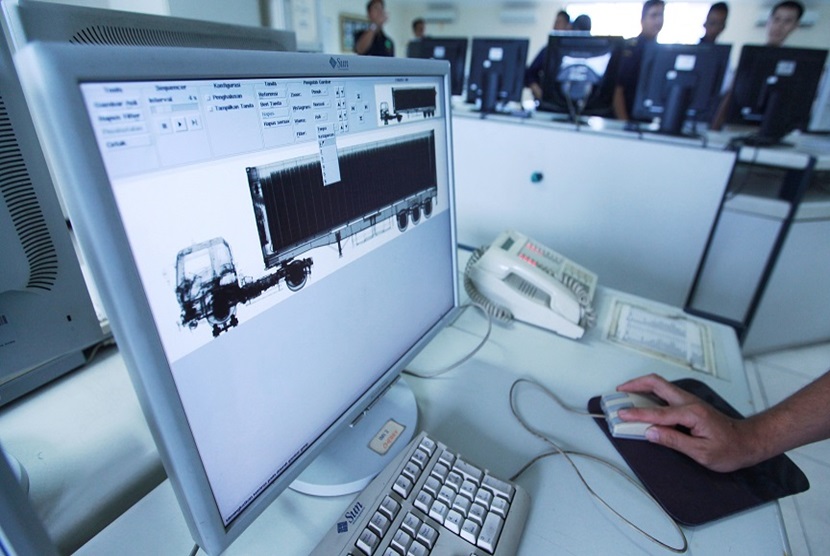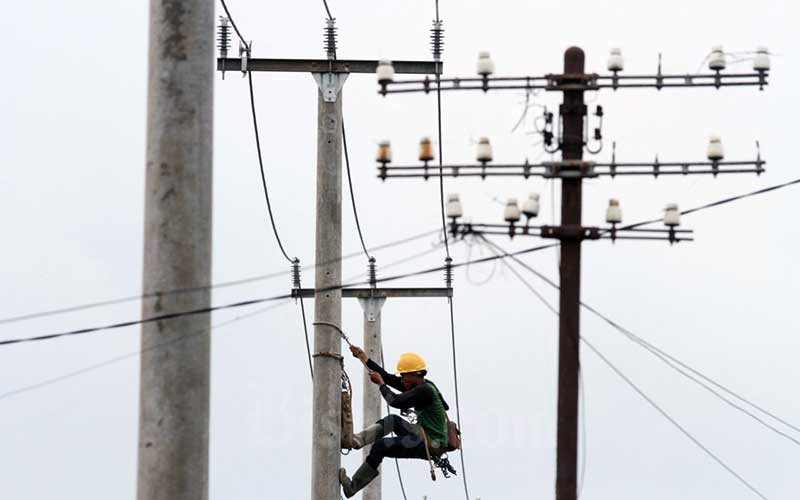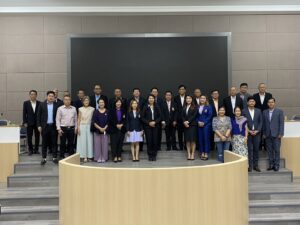[ad_1]

Grain prices at North Korean markets did not fall as they usually do around Apr. 15, which is Kim Il Sung’s birthday and the country’s biggest holiday.
Daily NK’s regular survey of North Korean market prices found that one kilogram of corn was selling for KPW 2,900 at a marketplace in Pyongyang on Apr. 14.
That was 3.6% (KPW 100) higher than the previous survey, on Mar. 31, two weeks ago, and the first time that Pyongyang corn prices have reached KPW 2,900 since last September.
Corn at a marketplace in Hyesan, Yanggang Province, was trading for KPW 3,200 per kilogram, which was also the highest the price has been there since last September.
Corn prices fell to KPW 1,900 per kilogram in early and mid-December, after last year’s harvest was complete, but have been rising ever since. Currently, they are trading around the KPW 3,000 level.
In contrast with corn, rice prices at North Korean markets have largely stopped increasing and are holding steady.
One kilogram of rice at a market in Pyongyang traded for KPW 5,350 on Apr. 14, which was KPW 50 higher than the survey on Mar. 31.
Rice at a market in Sinuiju, North Pyongan Province, sold for KPW 5,400 on Apr. 14, the same price as in the previous survey, while rice at a market in Hyesan sold for KPW 6,100. That was down KPW 100 from the previous survey, when rice in Hyesan had climbed to KPW 6,200.
It is possible that demand for rice has shifted to corn as the price of rice shot above KPW 6,000.
The modest decrease in the price of rice at the Hyesan market has narrowed the regional divide between rice prices in Pyongyang, Sinuiju and Hyesan. Even so, rice in Hyesan remained KPW 750 more expensive than in Pyongyang.
Daily NK reported last month that regional variation in rice prices may have been aggravated by the North Korean government’s restrictions on movement.
Notably, Kim Il Sung’s birthday does not appear to have had a major impact on grain prices this year.
When grain, sweets and alcohol are distributed to soldiers and party officials around the Feb. 16 birthday of Kim Jong Il and Kim Il Sung’s birthday, that grain typically ends up on the market, pushing grain prices a little lower. But that holiday effect was not very noticeable this year.
As it happened, another source in North Korea told Daily NK that children received considerably fewer presents on Kim Il Sung’s birthday this year than in previous years.
“Sweets were distributed at kindergartens and elementary schools on Apr. 14, but all the kids got was a handful of candy and a pack of cookies. Even that only applied to cities like Sinuiju – there were no treats and no presents in rural areas,” a source in North Pyongan Province said.
Translated by David Carruth. Edited by Robert Lauler.
Daily NK works with a network of sources living in North Korea, China, and elsewhere. Their identities remain anonymous for security reasons. For more information about Daily NK’s network of reporting partners and information-gathering activities, please visit our FAQ page here.
Please send any comments or questions about this article to [email protected].
[ad_2]
Source link




